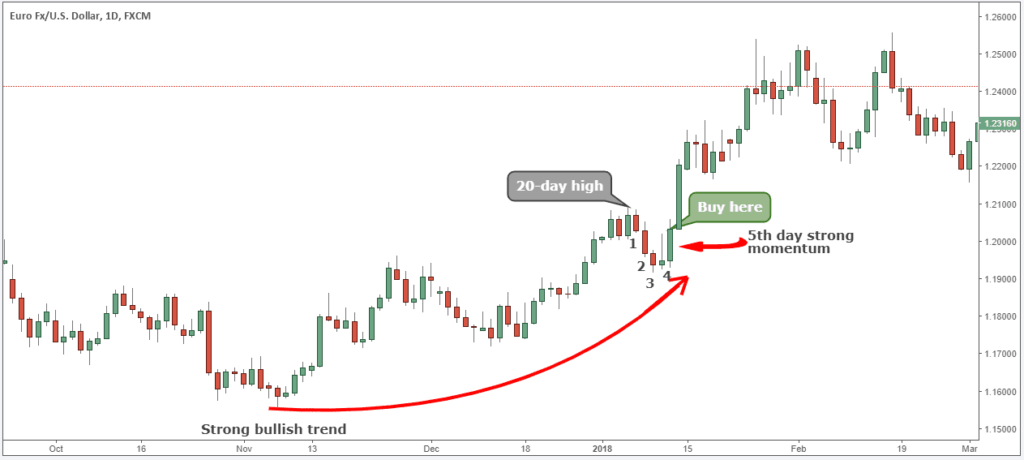Master the Key Strategies for Managing Trading Risk
Risk management in trading is the fundamental pillar of any successful strategy, by understanding the risks associated with each operation, traders can make informed decisions and avoid catastrophic losses.
Failure to manage risks can lead to significant financial consequences, even for the most experienced traders.
Understand the importance of risk management
Understanding the importance of risk management is essential in the world of trading, this knowledge allows traders to make informed decisions and avoid significant losses on their investments.
Lack of robust risk management can have devastating financial consequences, regardless of experience level.
Set profit and loss limits
Setting clear limits on profit and loss is essential, traders must determine in advance how much they are willing to risk on a trade and when to take profits.
This discipline helps avoid impulsive decisions during times of market volatility and ensures a more structured approach.
Portfolio diversification
Diversification is a key strategy to mitigate risks, instead of focusing on a single asset, traders should spread their investments across different financial instruments.
This reduces exposure to specific adverse events and balances overall portfolio performance.
Use stop-loss and take-profit orders
Stop-loss and take-profit orders are essential tools to control risk.
Setting a stop-loss level limits potential losses, while a take-profit order ensures that profits are automatically taken when a certain level is reached.
These orders help take the emotions out of trading and ensure disciplined execution of the strategy.
Proper position sizing
Determining the proper position size is crucial, not putting a significant portion of capital at risk in a single trade helps preserve the account in case of unexpected market movements.
Traders should carefully calculate their position sizes based on tolerated risk and account size.
Stay informed about market events
Being aware of market events is essential to anticipate possible risks, economic announcements, political changes and other events can have a significant impact on financial markets.
Staying informed allows traders to adjust their strategies and protect their investments.
Reevaluate and adjust strategies regularly
Financial markets are dynamic and constantly changing, traders must review and adjust their strategies regularly to adapt to market conditions.
Ignoring the evolution of the environment can lead to outdated decisions and inefficient risk management.
Trading psychology
Emotional control is as important as technical strategies, greed and fear can cloud judgment and lead to impulsive decisions.
Developing a disciplined mindset and staying calm during stressful times are essential skills for effective risk management.
Risk Management in Trading: Protecting your Capital with Wisdom
Knowing how to “manage risk in trading” is essential to avoid significant losses. Discover how to protect your capital intelligently with effective risk management strategies.
The Secret of Successful Risk Management:
Imagine having total control of your investments, minimizing risks and maximizing profits. The key is solid risk management that any trader, even a beginner, can learn.
Risk Management in Trading: Strategies and Tools to Minimize Losses
La risk management in trading It is a crucial aspect for any investor who aspires to be successful in the financial markets. Without a solid strategy to manage risks, even the most experienced traders can face significant losses. This article delves into the risk management in trading, highlighting its importance and presenting various strategies and tools to minimize the forex and futures trading risks.
What is Risk Management in Trading?
La risk management in trading refers to the process of identifying, analyzing and mitigating risks associated with financial operations. In it forex and futures trading, markets can be highly volatile, increasing the likelihood of experiencing losses if risks are not properly managed. Risk management includes the use of various strategies and tools to protect the trader's capital and ensure longevity in the market.
Importance of Risk Management in Trading
La risk management in trading It is vital for several reasons:
- Capital Protection: Risk management helps protect the trader's capital, ensuring that a bad trade does not result in a total loss of the account.
- Longevity in the Market: By properly managing risks, traders can ensure their long-term stay in the market, allowing them to take advantage of more trading opportunities.
- Stress Reduction: With a risk management strategy in place, traders can trade with less stress and make more rational and objective decisions.
Main Risks in Forex and Futures Trading
Before exploring the strategies of risk management in trading, it is important to understand the main forex and futures trading risks. These include:
- Market risk: The possibility of asset prices moving against the trader's position.
- Liquidity risk: The difficulty of entering or exiting positions without causing a significant impact on the price of the asset.
- Credit risk: The possibility that a counterparty will fail to meet its contractual obligations.
- Operational risk: Human errors, failures in trading systems or technical problems that can negatively affect operations.
- Leverage Risk: Using leverage can amplify both profits and losses, increasing the risk of significant losses.
Risk Management Strategies in Trading
1. Use of Stops and Limits
One of the most basic and effective strategies of risk management in trading is the use of stop-loss and take-profit orders. These orders allow traders to define specific price levels at which their positions will be automatically closed, thus limiting losses and locking in profits.
2 Diversification
Diversification involves spreading capital across different assets and markets to reduce risk. In it forex and futures trading, this can mean trading different currency pairs, futures contracts on various products and assets in different markets.
3. Proper Position Size
Determining proper position sizing is crucial for risk management in trading. Traders should avoid risking a large portion of their capital on a single trade. A common rule is not to risk more than 1-2% of total capital on a single trade.
4. Use of Responsible Leverage
Leverage can increase both profits and losses. It is important that traders use leverage responsibly and fully understand the associated risks. Limiting leverage can be an effective strategy to mitigate the risks. forex and futures trading risks.
5. Volatility Assessment
Volatility can have a significant impact on trading. Traders should evaluate market volatility and adjust their trading strategies. risk management in trading consequently. This may include adjusting position sizes, using wider stops, or avoiding trading in extremely volatile markets.
6. Technical and Fundamental Analysis
Using technical and fundamental analysis to make informed decisions can help reduce risks. Technical analysis is based on historical price data and chart patterns, while fundamental analysis considers economic factors and news that can affect the markets. By combining both approaches, traders can improve their ability to forecast market movements and better manage forex and futures trading risks.
7. Continuous Evaluation and Adjustments
La risk management in trading It is not a static process. Traders must continually evaluate their performance and adjust their strategies as necessary. This includes reviewing past operations, analyzing what worked and what didn't, and making any necessary adjustments to improve risk management.
Risk Management Tools in Trading
1. Trading Platforms
Modern trading platforms offer a variety of trading tools. risk management in trading. These tools include the ability to set stop-loss and take-profit orders, advanced charting for technical analysis, and real-time news integration for fundamental analysis.
2. Risk Calculators
Risk calculators are useful tools that allow traders to determine the appropriate position size and risk associated with each trade. These calculators can help traders stick to their trading strategies. risk management in trading and avoid risking more than they can afford to lose.
3. Risk Analysis Software
Risk analysis software can provide detailed information about the risk exposure of a trading portfolio. These tools allow traders to evaluate the potential impact of different market scenarios and adjust their strategies accordingly.
Psychology and Risk Management in Trading
Psychology plays a crucial role in risk management in trading. Traders must maintain discipline and adhere to their risk management strategies, even in times of high volatility or when facing losses. Some practices to improve trading psychology include:
- Keep calm: Avoid impulsive decisions based on emotions.
- Follow a Trading Plan: Have a well-defined trading plan and follow it rigorously.
- Accept Losses: Understand that losses are an inevitable part of trading and do not let them negatively affect judgment.
- Keep learning: Stay informed and continue learning about new strategies and tools risk management in trading.
@emergeprofit At Emerge Profit we have a 35% discount on Direct Passes using the EMERGE35 coupon and a 20% discount on Challenges using the EMERGE20 coupon. www.emergeprofit.com #trading #forex #forextrading #tradingforex ♬ original sound – Emerge Profit
Conclusion
La risk management in trading It is essential for any trader who wants to be successful in the financial markets. By understanding and applying effective risk management strategies, traders can protect their capital, reduce stress and ensure their longevity in the market. Modern tools and a solid understanding of forex and futures trading risks They can help traders navigate the markets with greater confidence and success.
Adopt a disciplined and meticulous attitude toward risk management in trading Not only will it protect your investments, but it will also allow you to make the most of trading opportunities. Remember that risk management is not a one-time activity; It is a continuous process that requires constant evaluation and adjustment to adapt to changing market conditions.
In short, a solid risk management in trading It is the backbone of a successful trading strategy. Implement the strategies and tools discussed in this article to improve your ability to manage the forex and futures trading risks and build a sustainable and profitable trading career.
For more information and resources on risk management in trading, visit www.emergeprofit.com. Here you will find guides, tools and professional advice to help you improve your trading and risk management skills.



